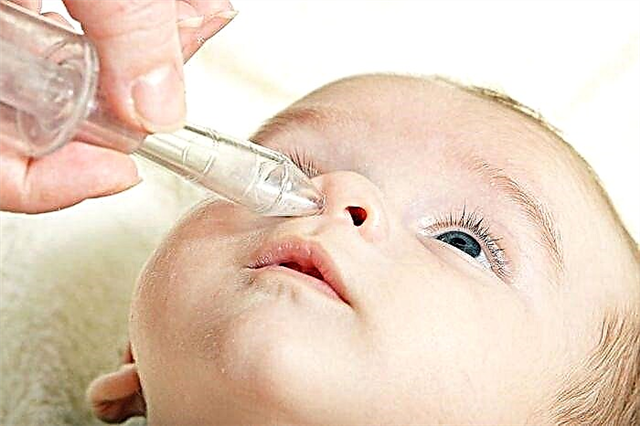
In vitro fertilization, even carried out in a good clinic by doctors with vast experience in working with reproductive technologies, cannot guarantee pregnancy. The procedure is complicated, time-consuming, expensive and, alas, not always successful. But all couples who go to IVF strive for success, because for this everything is started. In this article, we will tell you which IVF is considered successful, is it possible to get pregnant the first time, as well as what the symptoms and sensations are if pregnancy does occur after embryo transfer.


What determines the outcome?
Successful IVF is an in vitro fertilization protocol that ends in pregnancy. Successful protocols on the first try are the dream of any couple who decide to resort to solving the problem of infertility through assisted reproductive technologies. However, in practice, things are not so rosy.
The success of the protocol depends on the quantity and quality of the eggs obtained. If ovarian stimulation was carried out, all dosages and drugs were selected correctly, the ovaries responded adequately to stimulation, there is a high probability of receiving more eggs. In order to increase the chances of success, reproductive specialists must obtain at least 3 eggs.
The quality of the man's sperm, which is fertilized in a laboratory incubator, can also affect success. If there is a sufficient number of living and motile sperm in it, then the chances of oocyte fertilization increase. If a man does not have morphological changes in the spermogram, there is a chance of getting stronger and more viable embryos.


The tactics of embryo transfer are also important. Transferring too quickly reduces the chances of implantation. If a woman is implanted with 5-day-old embryos, the chances of their successful implantation into the endometrium of the uterus are increased compared to 2-day-old embryos. Following all the doctor's recommendations after replanting increases the likelihood of success. Violation of the recommendations, on the contrary, increases the risks of the "fly-by" protocol. It is important for a woman to lead a calm lifestyle, not to lift weights, not to go to the bathhouse and not to take hot baths, not to be nervous and stay calm. If hormonal support drugs are prescribed, they must be taken in strict observance with the recommended regimen, dosage and frequency.
One of the most important influencing factors is the patient's age. The younger the woman is when she enters the IVF protocol, the higher the chances that the protocol will be happy. After 35 years of age, the likelihood of success is significantly reduced. A man's age is important only in terms of the quality of his sperm and its DNA set. The older the man, the higher the likelihood of a violation of the morphology of sperm, their mobility.
To increase the chances of pregnancy, they try to plant 2-3 embryos in the uterus. If it was not possible to obtain such an amount initially, or problems arose at the stage of fertilization (it did not happen), the protocol may be completed ahead of schedule, an attempt will have to start over in a few months.

The probability of successful implantation is reduced if a woman has diseases of the uterus and its appendages, endometrial heterogeneity, postoperative scars on the uterus, accumulation of fluid in the fallopian tubes. When the ovaries are depleted, the chance of obtaining the required number of eggs is much lower.
Luck chance
This question is of interest to all those planning a pregnancy through in vitro fertilization, regardless of what kind of attempt a couple has to make. The probability of conceiving a child on the first attempt in women under 35 years of age without concomitant serious diseases of the reproductive system is on average 35-45%. In women over 45 years of age, this probability is no more than 8-10%.
The second and third attempts are usually much more successful - the chances increase by 5-10%. On the fourth try, the odds start to decline again. The second IVF after the successful first one cannot be guaranteed. If the first procedure was successful and a healthy baby was born, then during the second pregnancy protocol, various obstacles may arise that can prevent the same, as the first time, easy pregnancy.


There is no definite answer to the question from which protocol it is more likely to get pregnant. For many, after the first failure, the second or third protocol is completed successfully, some have to make 8-9 attempts.
It should be noted that any protocol in which a pregnancy occurs is considered successful, and it does not matter how it ended. The very fact of the onset of pregnancy is regarded by doctors as a positive protocol. In 15% of cases, pregnancies made possible by IVF are terminated early. A miscarriage or missed pregnancy can occur for a wide variety of reasons. Premature birth occurs in 10% of cases. In 1-2% of cases, an ectopic pregnancy develops after embryo replanting. With the birth of a living child, pregnancy after IVF ends in 80-85% of cases.
When entering into the protocol of in vitro fertilization, a woman and her partner should be well aware that payment for clinic services according to a medical service agreement is not a guarantee of a successful attempt. In case of an unsuccessful attempt, the patient will not be refunded the money. You should not pin too high hopes on pregnancy, because in more than half of the cases, after the first attempt, a woman's next period begins on time, and it can be quite difficult for her to get rid of frustration and depression.


The correct attitude with an understanding of all statistical probabilities will help to respond more adequately and increase the chances of pregnancy, since stress hormones only reduce the likelihood of successful implantation of the ovum.
Signs and symptoms of pregnancy before delay
After the embryos are transplanted into the uterus, the woman begins to "listen" more closely to her feelings and changes in the body, hoping to notice early signs that the protocol has been successful. The first changes in habitual sensations can be noticed only after the embryo is able to penetrate into the endometrium of the uterus and begins to develop. Chorionic villi from the first day after implantation will begin to produce a special substance - chorionic gonadotropic hormone, which underlies the diagnosis of early pregnancy.
The concentration of the hormone will increase in stages, doubling approximately every two days. Implantation most often occurs at 3-6 dp (day after transfer). In this way, in the woman's blood, it will be possible to fix the growth of the hormone from 10-12 days after replanting.
But with IVF, the time of implantation is rather difficult to determine, and therefore it is recommended to donate blood for hCG no earlier than 14 days after the embryo transfer.

During these two weeks, you should not constantly look for symptoms and signs of pregnancy, so that later you will not experience bitter disappointment. It is best to do an interesting thing, communicate with people, walk, devote time to reading interesting books, handicrafts, lie more and not lift weights. It is important to get enough sleep and eat properly and in a balanced way - no diets! It is advisable to take vitamins and folic acid.
The first symptom can be detected by a woman 3-6 days after replanting. Sometimes (far from always and not at all necessary!), The violation of the integrity of the endometrium of the uterus at the time of the introduction of the ovum into it is accompanied by a small, non-abundant hemorrhage. This phenomenon is called implantation bleeding. On the day of implantation, a woman may feel minor pulling pains, and a bloody spot or brownish daub may appear on the pad.
If it does not intensify, is not accompanied by severe pain, a general deterioration in well-being, then there is absolutely nothing to worry about - implantation bleeding does not increase the likelihood of fetal rejection, does not increase the risk of miscarriage or frozen pregnancy. Subsequently, it does not affect the child's health in any way. Usually, such bleeding ends in a few hours, or at most - a couple of days.


Such a sign after IVF can go unnoticed, because many women after replanting for two weeks have slight bleeding from the genital tract, and this is considered completely normal. There may be no implantation bleeding at all, and this does not mean that the protocol is unsuccessful.
In some cases, after IVF, late implantation occurs - only 8 or 10 days after replanting. The likelihood of such a phenomenon is low, but it cannot be ruled out. Therefore, even a blood test for hCG on day 14 does not always show a sufficient level of concentration of this substance. Success can be judged only after 21 DPP, when the first ultrasound will be performed, which will confirm the fact of pregnancy.
Among other signs that may or may not be, women often report mood changes. Against the background of changes in the hormonal background in the IVF protocol, women most often get so used to the jumps in their own mood that they may not attach much importance to the fact that a few days after the transfer of embryos to the uterus, they suddenly want to cry for no reason or there will be increased irritability, the victims of which will surely be loved ones ...

Some women, a week after replanting, notice that they become excessively sleepy, get tired faster, and cannot concentrate on some business or task. This is how progesterone begins to work in the body. Since in a stimulated cycle a woman takes progesterone preparations to support a possible pregnancy, it is not worth attaching special importance to this side effect of the hormone - the symptoms that are characteristic of the early stages of pregnancy, which occurred naturally, will not necessarily indicate pregnancy after IVF against the background of hormones.
Often, women who have had a successful IVF protocol recall that about a week after replanting, their body temperature began to rise - every day after lunch or in the evening they felt a chill, and their thermometers showed 37.0-37.5.
The breasts may become more sensitive within a few days after implantation. But this sign also cannot be considered unambiguous - the reason for the changes in the mammary glands may be changes that were caused by rather aggressive hormonal stimulation of the ovaries to obtain superovulation at the initial stage of the protocol.


You should not expect toxicosis - it is too early, and not all women have pregnancy accompanied by toxicosis. But an increased appetite may well appear within a few days after implantation of embryos, because progesterone will begin to create an energy "reserve" for the baby. Also, frequent urination can be attributed to one of the early signs.
Reviews
According to the reviews of women, which they leave in large quantities on thematic forums, very often, even before the diagnosis of pregnancy, there was a feeling that a cold had begun. Nasal congestion appeared, began to shiver and the temperature rose. This is how the body sometimes reacts to the suppression of immunity, which causes progesterone, if the pregnancy has taken place. Subsequently, it turned out that the deterioration in well-being was in no way associated with a cold or ARVI, these were the earliest and first signs of the onset of pregnancy.

In IVF with low AMH or other hormonal problems, women often note that the thermometer readings do not provide objective information when the basal temperature changes, and therefore after replanting the embryos, if the protocol included hormonal stimulation, the method of measuring the basal temperature is not informative and can be misleading.
In the next video, the fertility specialist will talk about the features of IVF.



